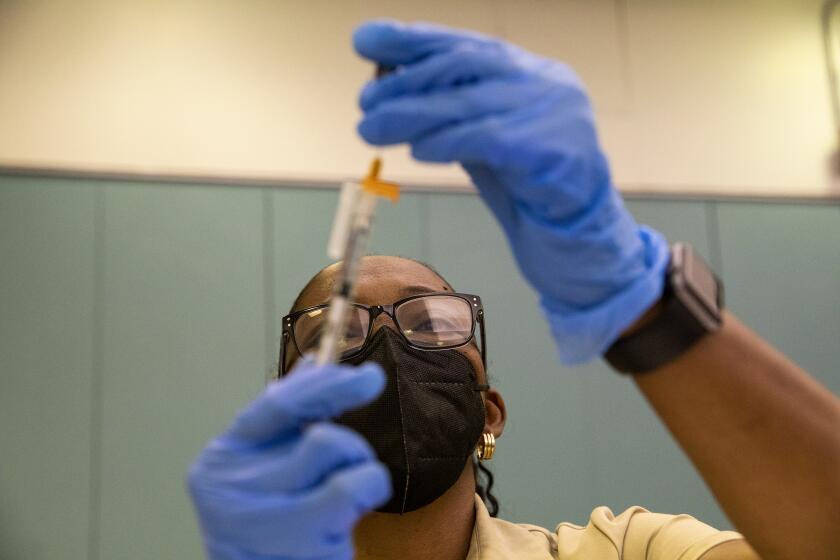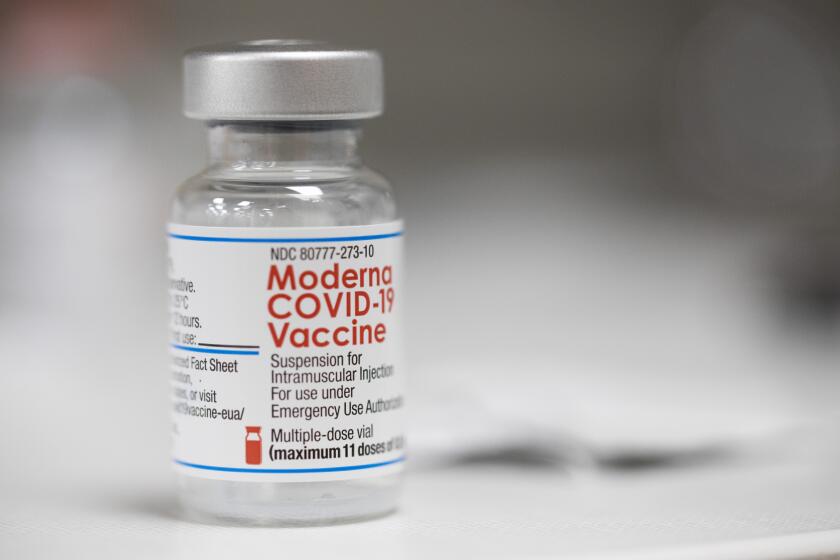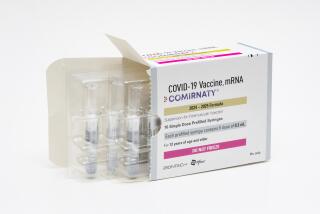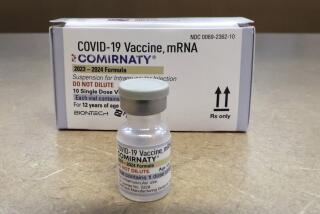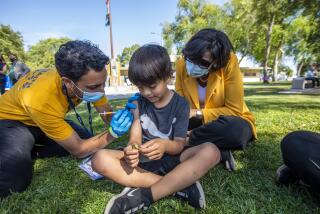FDA advisors recommend updating COVID booster shot formula for fall
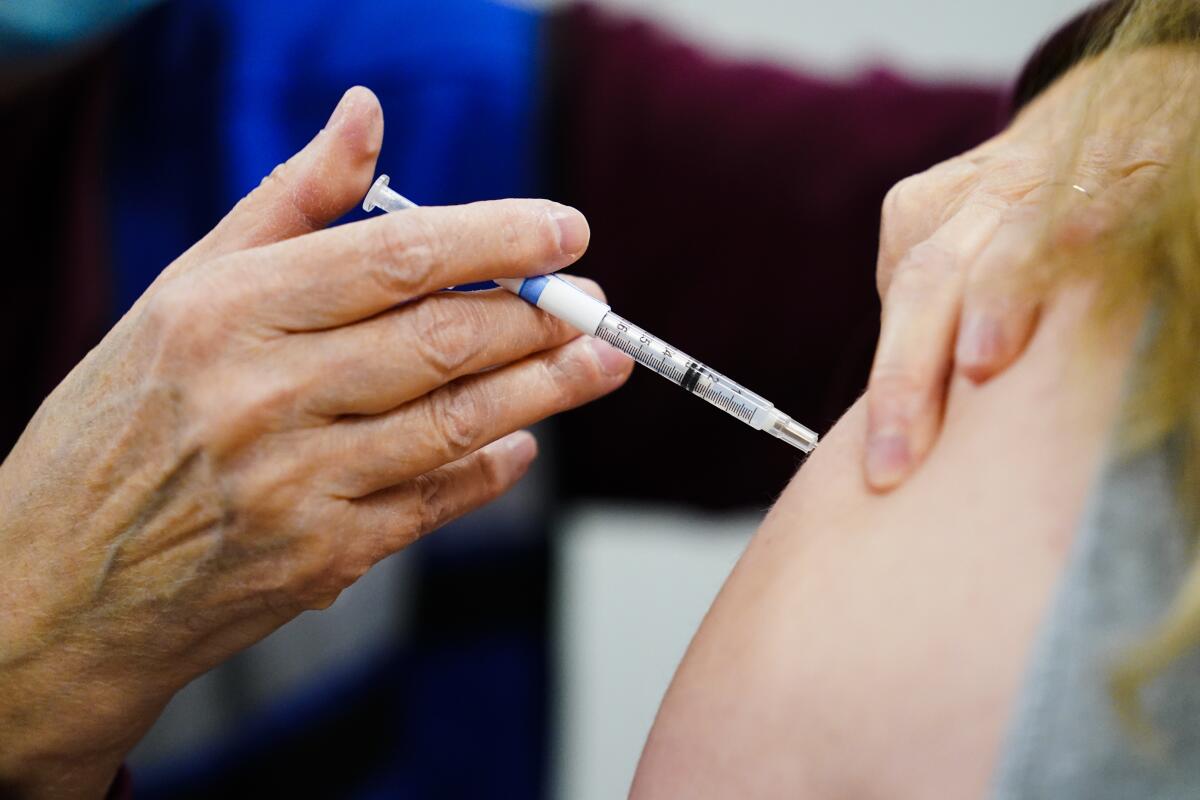
- Share via
Some U.S. adults are a step closer to getting updated COVID-19 boosters this fall, as government advisors voted Tuesday that it’s time to tweak the shots to better match the most recent virus variants.
The Food and Drug Administration will have to decide the exact recipe but expect a combination shot that adds protection against a version of the super-contagious Omicron variant to the original vaccine.
Advisors to the FDA voted 19-2 that some version of Omicron should be part a fall booster campaign, an effort to blunt an expected COVID-19 surge.
“We are going to be behind the eight-ball if we wait longer,” said Dr. Mark Sawyer of UC San Diego.
But panelists cautioned that the recommendation doesn’t necessarily mean everyone would get a tweaked booster — they might be urged only for older adults or those at high risk from the virus.
Current COVID-19 vaccines have saved millions of lives globally, according to modeling studies, and those used in the U.S. still offer strong protection against hospitalization and death — especially after a booster dose. But their ability to block infection dropped markedly when the Omicron variant emerged.
People who had only two initial doses of an mRNA COVID-19 vaccine fared no better against Omicron than those who were unvaccinated, new study finds.
Pfizer and Moderna tested shots updated to better match the Omicron strain that surged over the winter, but that first version has disappeared — replaced by its genetically distinct relatives. The two newest Omicron cousins, called BA.4 and BA.5, together now make up half of U.S. cases, according to estimates from the Centers for Disease Control and Prevention.
Only about half of vaccinated Americans have gotten a single booster. And, while a second booster that’s recommended for people 50 and older again restores protection, only a quarter of those eligible have gotten one. Authorities hope an updated booster for fall might entice more interest.
So what’s the evidence for a recipe change? Among the evidence Tuesday:
• Both Moderna and Pfizer found that what scientists call “bivalent” shots — a combination of the original vaccine plus Omicron protection — substantially boosted levels of antibodies capable of fighting that variant, more than simply giving another regular dose. Many scientists favor the combination approach because it preserves the original vaccines’ proven benefits, which include some cross-protection against other mutations that have cropped up during the pandemic.
Both companies found the tweaked shots also boosted antibodies against BA.4 and BA.5 but not by nearly as many.
• Pfizer and its partner BioNTech also are offering up an Omicron-only shot. Also in animal testing is vaccine further tweaked to match BA.4 and BA.5.
• A third company, Novavax, is awaiting FDA authorization of a more traditional kind of COVID-19 vaccine, protein-based shots. It argued that a booster of its regular vaccine promises a good immune response against the new Omicron subvariants.
The FDA is considering whether to offer new COVID-19 booster shots this fall that better match the latest coronavirus variants.
Another issue: Advisors to the World Health Organization recently said that Omicron-tweaked shots may be beneficial as a booster rather than a replacement for first vaccinations — because they should increase the breadth of people’s protection against multiple variants.
“We don’t want the world to lose confidence in vaccines that are currently available,” said Dr. Kanta Subbarao, a virologist who chairs that WHO committee.
